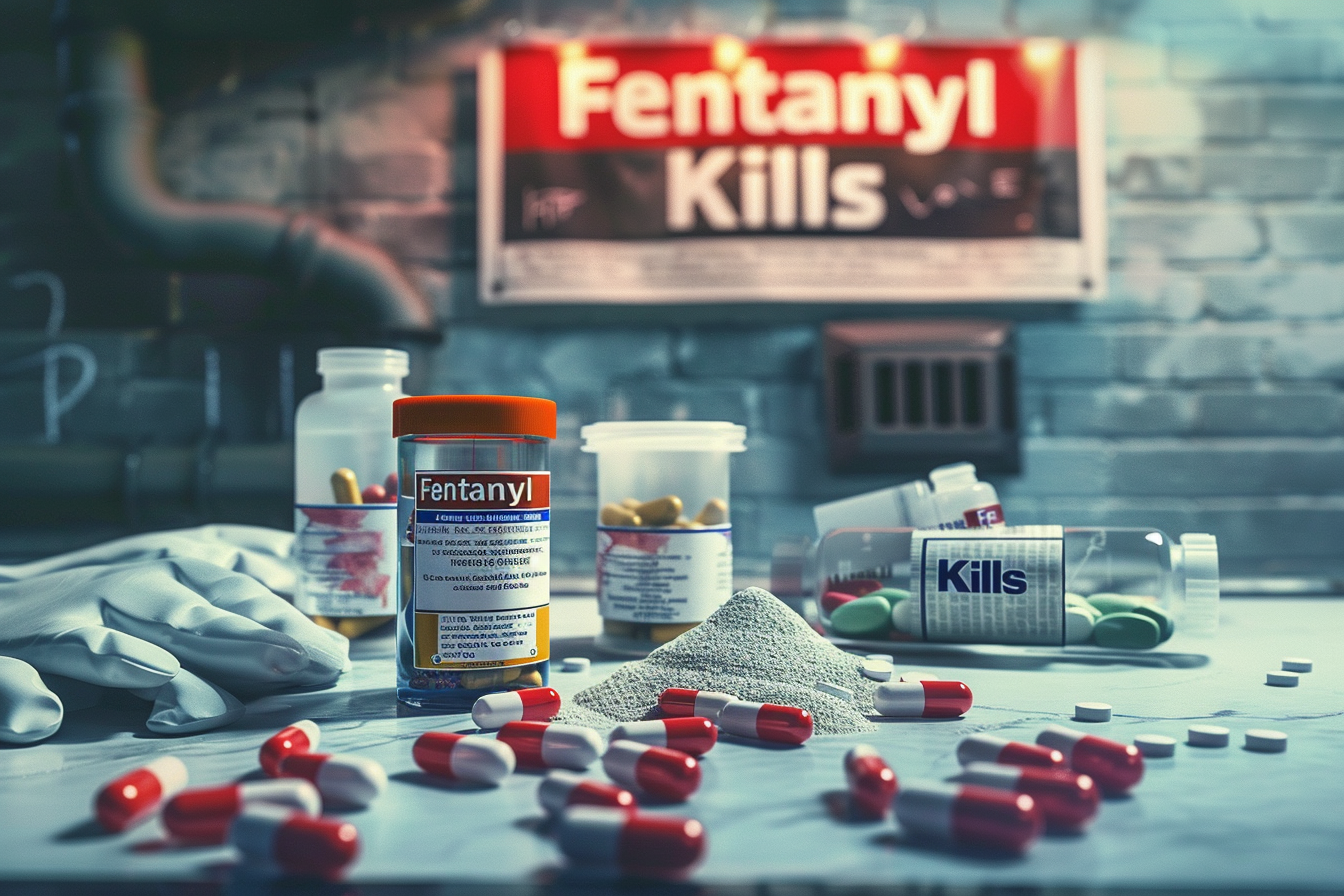Facts About Fentanyl

What is Fentanyl?
Fentanyl is a synthetic opioid pain reliever that is much more potent than other opioids like morphine or heroin. It's typically used to treat severe pain, especially in cases like surgery or for patients who have developed a tolerance to other opioids.
Where Does FentanylCome From?
Fentanyl can be made in illegal laboratories and is often mixed with other drugs like heroin, cocaine, or counterfeit pills without the user's knowledge. It's sometimes sold as fake prescription pills or mixed with other drugs to increase their potency.
Did you Know?
Fentanyl is a synthetic opioid that is up to 50X stronger than herion and 100X stronger than morphine. SOURCE: CDC.GOV
What Does a FentanylOverdose Look Like?
- Shallow or slow breathing, choking sounds, or complete cessation of breathing.
- Person may be difficult to wake up or non-responsive.
- Constricted pupils that appear like tiny dots.
- Skin that feels cold and clammy to the touch.
- Muscle weakness or inability to move.
- Cyanosis, a bluish tint to the lips or nails due to lack of oxygen.
- Difficulty speaking coherently or understanding conversations.
- Uncontrolled shaking or convulsions.
What Does Fentanyl Look Like?
Fentanyl can come in various forms. It might appear as a white powder, in pill form, or even as a patch designed for slow release through the skin. It's crucial to note that it can be disguised as other medications or drugs, making it challenging to identify.

Is Fentanyl Dangerous?
Fentanyl is incredibly potent, and even a tiny amount can be fatal. It's a major contributor to the opioid crisis, leading to a significant number of overdoses and deaths worldwide.Its strength and unpredictability make it an extremely dangerous substance.
IF YOU SUSPECT SOMEONE IS EXPERIENCING A FENTANYL OVERDOSE, IMMEDIATE ACTION IS CRUCIAL.
Call Emergency Services: Dial emergency services (911) for immediate medical assistance.
Administer Naloxone: If available and you are trained to use it, administer naloxone (Narcan) following the instructions provided. Naloxone can reverse the effects of an opioid overdose.
Stay with the Person: Stay with the individual until emergency responders arrive and provide any relevant information to the medical professionals about what substance was taken, if known.
Our Resources
Together, We Can Change the Conversation.
Join "Voices for Change" and be a beacon of understanding, compassion, and action.




